- Home
- Patricia McLinn
Proof of Innocence Page 7
Proof of Innocence Read online
Page 7
Pan had a broken fingernail, but no useful DNA was found under any of her nails. He’d had no marks on him, but the shirt could have protected him.
They’d found a note in his handwriting about off-base living with Pan’s body.
“Practically the only piece of evidence that didn’t get spread all over the county before the trial, because it wasn’t found until the autopsy at the regional ME’s office,” she told Bel. “They kept it to themselves except for the official reports, unlike the locals. They found the paper in her mouth, like it had been shoved in there. Which logic says was the action of someone angry and taking something very personally.”
“What did your guy say?” Bel asked.
She suppressed the urge to say he wasn’t her guy, instead delivering the facts. Carson acknowledged giving Pan the note, but said it had been the previous day and their conversations had shifted to her trying to make her marriage work.
He’d said he left Pan in the clearing, taking the path through the woods to his home. He’d stayed there, alone, until a phone call the next morning from Pan’s worried mother. He said he’d immediately searched the clearing and found Pan dead.
“What’s Carson’s connection to this second victim?” Bel asked.
She smiled without humor. “The sheriff will tell you that figuring out if Laurel is the second victim is the job of this bizarre task force I’ve been maneuvered onto.”
“You don’t get maneuvered, Mags. And I still wanna know if he’s connected to the latest dead body.”
“Of course he is. Everyone in this damned county lives in everybody else’s pocket. He seems to have been a frequent visitor to her father’s place — Rambler Farm. Don’t let farm fool you — it’s an estate. Plus, the older Blankenship sister went to school with Carson, Pan Wade, and Wade’s estranged husband.”
“What about that estranged husband? Was he looked at for the first murder?”
“He had an alibi. I don’t remember the details of it.” She scribbled a note to herself. “I should remember the details.”
“That case landed on you like a pile of bird shit at the last minute. You were too busy trying to get bird shit out of your hair to look around at the rest of the flock.”
Despite herself, she chuckled. “Thanks, Bel. I wonder about the current victim’s estranged husband’s alibi, too.”
“Another estranged, huh?”
“Yeah. This guy also has three exes before Laurel. I wanted to go there tonight to interview him — there and to Rambler Farm to talk to the judge and the sister. Laurel had been staying with her family since the problems with her husband. But Monroe said it was too soon to intrude on their grief. God, like you should give people a week to come up with their story.”
“Surprised you didn’t go on your own.”
“I would’ve. But the sheriff said no because he was conducting a round of interviews with them tonight about Laurel. I wanted to go along, but Gardner didn’t want me since I’m only supposed to be looking at the earlier murder.”
Bel made a noise that might have been sympathy. But she suspected it was for Sheriff Gardner, not her.
“Instead, Monroe insisted I have dinner at his place with him and Carson.”
“Learn anything?”
“Only that Carson wasn’t murdering anybody tonight between seven and nine-fifty-five. And Dallas Monroe can talk non-stop for nearly three hours.”
“He’s a lawyer, isn’t he?”
She gave an obligatory huh of amusement. “Gardner says he wants the details of the Wade case organized, but he’s swamped. What he really needs is comparing and contrasting of the circumstances and victimology of Pan Wade’s and Laurel Tagner’s murders.”
“He’ll love you telling him what he really needs.”
She ignored that. “And if I catch Carson in inconsistencies, place him where he says he wasn’t, get a line on a real connection between him and Laurel, I can nail the bastard this time. Get enough to convict—”
“Whoa. You’re not just putting the cart before the horse, you’ve got the cart miles down the road. Quit trying to go from nothing to a mountain of evidence. The mountain—”
“I know, I know. The mountain starts with a pebble,” she mimicked his frequent lecture.
“That’s right,” he said evenly. “It’s pretty simple, Mags. You’ve either got one murderer or two, with this recent one using what worked for the first murderer. Concentrate on which it is, and keep an open mind about the rest. Who and ifs and all. You don’t start with a vision of the mountain. You let the pebbles piling up say what the mountain’s going to look like.”
CHAPTER THIRTEEN
Tuesday, 7:12 a.m.
The old-fashioned black telephone rang as Maggie’s hand touched the guesthouse doorknob.
She picked it up before the second ring.
“Maggie! Come on up to the house. Evelyn’s made us breakfast.” Dallas Monroe’s voice boomed. “Just follow the path from the back door.”
He hung up before she could reply.
She wouldn’t have declined anyway. She had things to get straight with Monroe. Besides, she was hungry.
The path started as a narrow passageway between thickets of what Carson had identified as rhododendron bushes. Branches met overhead, creating a dim, moist tube. Just short of the main house, one side opened to a large oval of lawn bordered by beds with green shoots poking through the soil and climbing over the dried husks of last year’s plants.
“Come in, come in,” Monroe called. He held a door open in a one-story frame addition to the three-story brick house.
The warm scent of eggs and bacon wrapped around Maggie. She sucked it in with an unconscious inhalation.
“Wonderful, isn’t it?” He smiled widely as his hand at her back urged her into a long, narrow kitchen spattered with sunlight. “If you thought dinner was good, wait until you taste Evelyn’s breakfast.”
Maggie had briefly met Evelyn DuPree, a black woman with gray working its way from her hairline to the crown of her head, the night before. Now, she smiled, said hello, and gave Maggie the once-over in two seconds flat, before returning her attention to a pan of scrambled eggs. “Sit down. Dallas, get the girl juice and coffee.”
He waved Maggie to a seat at a table by the windows and quickly complied. He settled into his chair and Evelyn delivered plates with portions of eggs already on them, one in each hand and the third balanced against her forearm.
“Evelyn, my love, will you marry me?” Monroe breathed in, his eyes almost closed.
“No.”
“You wound me to the heart.”
“Remember you only eat like this every two weeks or you won’t have any heart at all.”
He faced Maggie with an air of pointedly ignoring Evelyn’s comment. “How do you like my little guesthouse, my dear?”
“It’s fine.” Evelyn’s forehead wrinkled at the curt word. Maggie added, “It’s lovely. Thank you for letting me stay there.”
“Not at all, not at all. Delighted.”
“There is one thing, Mo — Dallas. I’d like to have all the keys in my possession while I’m here.”
Her host emitted a gust of laughter. “My dear, you might as well ask me to give Sisyphus a hand with rollin’ that rock up the hill in hell — it’s as useless a task.”
Evelyn smiled. “He hands keys out like candy on Halloween. About all anybody has to do is show up and say Trick or Treat.”
“How many keys?”
Monroe lifted his hands. “I have no idea. I don’t recall askin’ for any of them back.”
Evelyn considered. “Scott, of course, and Rick Wade, and Eugene Tagner for a couple nights, and the sheriff. Before that, we had Ed Smith and Abner — one of the deputies — and of course J.D. You’d think Dallas was running Bedhurst’s version of Boys Town.”
“You know they’re all here for your cookin’ when it comes down to it, Evelyn, and you love havin’ guests.”
“At lea
st this time it’s a woman,” Evelyn grumbled, but with a hint of a smile. “She’s bound to be better about bringing the garbage up to the bins, keeping the raccoons from rampaging.”
Maggie brought the conversation back on topic. “Carson stayed here?”
“After the trial,” Evelyn supplied, as Monroe ate. “Until he got his place in the woods squared away. Worked on it hard, but what with studying law and all, it took nearly two years.”
So, Carson had a key to the guesthouse, among a cast of thousands.
That misplaced tube of cleanser. Had she been forgetful? Or was there another explanation?
“You mind drivin’ this mornin’, Maggie? My car’s in for a tune-up.”
She jerked her attention back to Dallas. “Driving where?”
“Here and there. Talkin’ to folks who knew our victim well. That’s what J.D. and I are tacklin’ first thing. Figured you’d surely want to come along.”
“All those interviews were already done, besides the trial files will be delivered today.”
“Ah, Pan Wade’s case, yes. But people are out there.” He swept his arm in a gesture she remembered from the courtroom. “Files stay put, never changin’, but people don’t. Longer we wait, the more time for them to forget somethin’ about Laurel or remember somethin’ that never was.”
“About Laurel?” So his mind was also on comparing and contrasting the two murders, though, clearly he’d be searching for differences to put Carson in the clear. That was okay. She could make this work to her advantage. Still, no reason to make it too easy. No reason at all. “We’re supposed to get the sheriff up to date on Pan Wade’s murder. He doesn’t need his investigation duplicated.”
“How’re we to tell him if the cases are connected if we don’t know a thing about this murder? We gotta gather facts.”
She was being pushed. Any doubt was erased by the bright, curious way he watched her.
She didn’t like being pushed. Even when it was in the direction she wanted to go. Besides, it set a bad precedent to fall over at the first push.
“When will Scott have copies of the official transcript? If those are ready, we should—”
“Won’t be a while yet. Give the boy a chance.”
The first batch of material from Nancy wouldn’t arrive via messenger until later in the day. Besides, she wasn’t about to let Carson and Monroe go off on their own.
She paused, as if her mind weren’t made up. “All right. On the condition we start with the witness from Carson’s trial who heard Carson and Pan arguing — Teddie Barrett.”
“Hah! I showed on cross-examination he heard nothing of the kind.”
“You took advantage of him, confused him, and—”
“Stop!” Evelyn commanded. “Leave that behavior in the courtroom, it’s not fit for the breakfast table. Now, Dallas, you tell this girl straight out that poor boy died four years ago.” To Maggie she said, “He was riding his bike out Falls Road like he liked to, and somebody must’ve hit him, knocked him and his bike right off the bridge and down I don’t know how far, poor soul.”
“Hit and run? He was killed in a hit and run?”
“That’s right. Hit and run accident. Though how they can call it an accident I don’t know when somebody’s so evil he doesn’t stop to help, especially a soul as harmless as Teddie Barrett.”
CHAPTER FOURTEEN
To J.D.’s thinking, the uninspired modernity of Eugene Tagner’s house should have been cited for littering concrete boxes on Dry Creek Ridge.
He’d said as much to Pan. She’d said spending money wasn’t the same as exercising good taste.
Louelle, who’d previously worked for Eugene’s parents, answered the doorbell and ushered them through a yawning hallway with a chandelier that resembled pickup sticks, and into a study where black leather, chrome, and glass fought for domination.
Earlier, J.D. had stepped into Monroe House in time to hear Maggie’s clear voice stating their first stop would be to see Teddie. He’d waited out of sight until Evelyn explained.
When he entered, Dallas was saying they’d start with Eugene Tagner.
Maggie immediately said, “We should talk to Teddie Barrett’s family.”
Dallas tsked. “Four years after the fact? Talking to next of kin right after a murder is good sense. Four years after an accident — tragic as it might be — is not. Eugene first.”
J.D. had seen Maggie want to argue, recognizing she was being manipulated. Then he’d seen her wonder why she was being manipulated. He’d seen the moment she’d decided watching Dallas question Eugene might answer that.
She’d been even more eager than Dallas to get here, judging by her driving, which had Dallas clutching the dashboard dramatically. She’d paid no attention.
J.D. had felt no concern. She drove fast, but she drove well. She was a most competent woman.
He’d recognized that when she tried to convict him of murder.
He’d confirmed it in more detached circumstances on three occasions when he’d watched her prosecute other defendants.
He’d stayed tucked into the back of those courtrooms, but he needn’t have bothered. Completely focused, she’d gotten three guilty verdicts.
Yes, Maggie Frye was most certainly competent.
Eugene arrived. A combination of a swayed back and an officious walk sent his rounded belly before him like a herald.
“Dallas, how kind of you to support me during this tragedy. Tragedy.” His loud, high voice bounced off the walls and surrounded them.
Dallas introduced “my colleague from Northern Virginia, Maggie Frye.” Tagner said hello, his gaze cataloguing her charms.
But J.D. suspected intelligent eyes, eloquent mouth, and stubborn chin weren’t charms that would appeal to Eugene, even when they were accompanied by that body.
Subtle charms didn’t suit Eugene.
He liked blonde and buxom of the sort nature never created. Plus, he liked twenty-two. He’d married his first twenty-two-year-old when he was twenty-four, his second at twenty-nine, his third at forty-three and his fourth at forty-six, three years ago.
Eugene nodded dolefully as they each expressed their condolences.
“I don’t know what to do with myself,” he said. “My heart’s ripped right out, right out. This is such a tragedy. We were happy as two peas in a pod, peas in a pod.”
“Mr. Tagner, your wife had left you, you couldn’t have been too happy,” Maggie said.
Eugene’s mouth flopped open. Dallas glared at her.
“Now, Eugene,” Dallas soothed, “why don’t you just tell us what you know.”
“Know? Nothing! That new sheriff won’t tell me a thing. All I know is my darling wife’s been most cruelly taken from me. I know what some are saying,” he added. “But no one from outside can know what passes between a man and his wife, between a man and his wife.”
“So true,” Dallas murmured. “But tell us, you and Laurel had a bit of trouble, isn’t that right?”
“No more than any couple.”
“Enough trouble for her to move back to her father’s house,” Maggie said.
Eugene breathed out noisily through his nose. “The judge missed her.” He turned to Dallas again. “You know how crazy he’s always been for Laurel. But we were going to break it to him Sunday that her visit to Rambler Farm was over and she was coming home to me.”
Two peas back in the pod.
“In fact, I was the first to get worried when she wasn’t there at Rambler Farm. I knew how excited she was to let everyone know she was coming home. I was the one to raise the alarm, to say something was wrong.”
Dallas nodded. “Now, Saturday—?”
“I was here. All day, and all night. Had friends here for poker. You know the kind of thing. You can ask Louelle.”
“You didn’t have plans to see Laurel, spend time together Saturday night?”
“No need, what with her coming home soon. Besides, that way it would be a surprise
for everyone Sunday. A happy surprise.”
He shielded his eyes, as if to hide tears.
“The sheriff will need the names of your poker guests, Mr. Tagner,” Maggie said.
“Gave him the list yesterday.” He dropped his hand. His eyes were dry.
J.D. recalled a line he’d heard. Eugene was shaken, not stirred by his wife’s murder.
“It must be a pure consolation to you, Eugene, to know sweet Laurel was comin’ home. And don’t you be chewin’ on the fact that if you’d raised her allowance early on instead of tellin’ her she was gettin’ all she’d get, you could have had more time with her.” Dallas gave a convincing a-thought-just-occurred-to-me start. “Perhaps she wouldn’t have been killed at all. But don’t you be thinkin’ about that. No, you console yourself knowin’ you saw the light at the end.”
“That’s right, that’s right.” Eugene licked his lips. “I did see it her way. And that’s what I told her. Came right out like a man should, and said I’d been wrong. A woman — a young, beautiful woman like Laurel — wants pretty things. I wouldn’t have loved her as much as I did if she hadn’t been the kind to love beautiful things, now would I?”
Dallas nodded. “Makes sense. There’s one thing kind of confusin’ to me. I was down to a bar association meetin’ in Lynchburg while back. Picked up Henry Zales at his office, saw his last client headin’ out as I pulled in. I’d take my oath it was Laurel in that blue vehicle of hers.”
J.D., walking to the wide window on the side wall, glanced at Maggie. Not even knowing the significance yet, he could see her mind working to figure out how fast she could have someone check out Zales.
Taking too long formulating his answer, Eugene said, “What if she did talk to Zales? Doesn’t mean anything. Just checking what was what, background. I knew. She told me.”
“Background on what? Because Henry practices divorce law.”
Eugene swallowed “What if he does? We were working out our differences and she was coming home, like I said. If that’s all—”

_preview.jpg) Almost a Bride (Wyoming Wildflowers Book 1)
Almost a Bride (Wyoming Wildflowers Book 1)_preview.jpg) Prelude to a Wedding (The Wedding Series Book 1)
Prelude to a Wedding (The Wedding Series Book 1)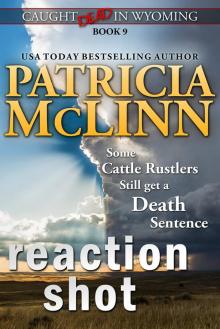 Reaction Shot (Caught Dead in Wyoming, Book 9)
Reaction Shot (Caught Dead in Wyoming, Book 9)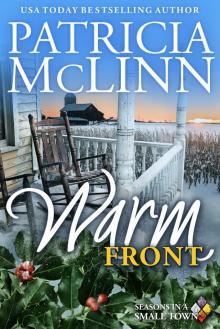 Warm Front
Warm Front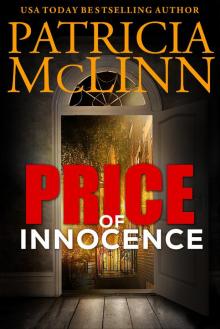 Price of Innocence
Price of Innocence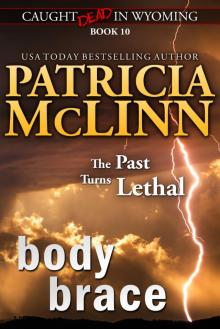 Body Brace (Caught Dead in Wyoming, Book 10)
Body Brace (Caught Dead in Wyoming, Book 10)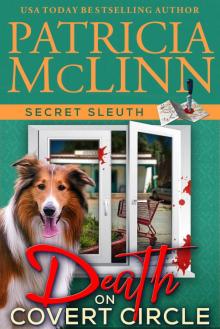 Death on Covert Circle
Death on Covert Circle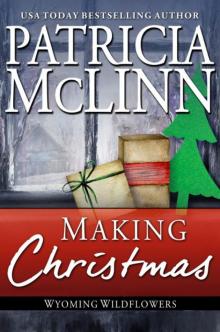 Making Christmas
Making Christmas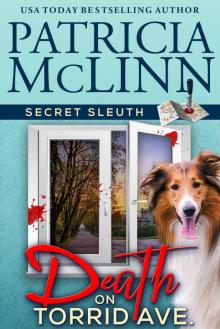 Death on Torrid Ave.
Death on Torrid Ave.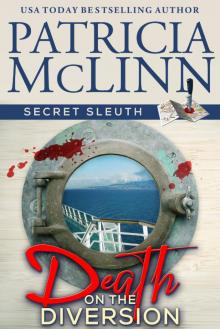 Death on the Diversion
Death on the Diversion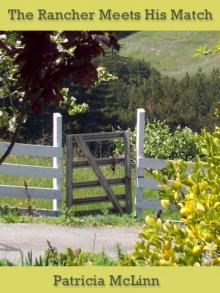 The Rancher Meets His Match
The Rancher Meets His Match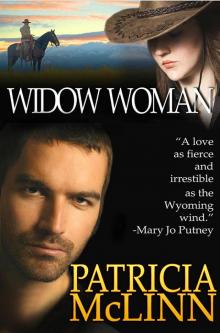 Widow Woman
Widow Woman The Runaway Bride
The Runaway Bride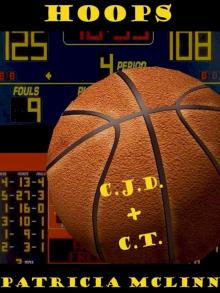 Hoops
Hoops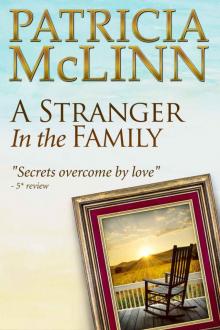 A Stranger in the Family (Book 1, Bardville, Wyoming Trilogy)
A Stranger in the Family (Book 1, Bardville, Wyoming Trilogy)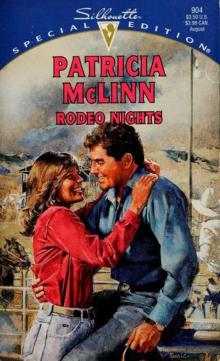 Rodeo Nights
Rodeo Nights Wedding Series Boxed Set (3 Books in 1) (The Wedding Series)
Wedding Series Boxed Set (3 Books in 1) (The Wedding Series)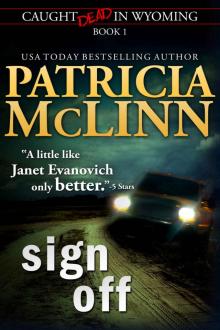 Sign Off (Caught Dead in Wyoming, Book 1)
Sign Off (Caught Dead in Wyoming, Book 1)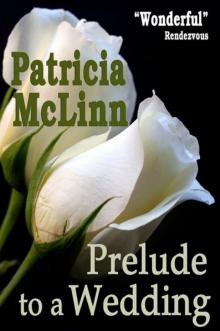 Prelude to a Wedding
Prelude to a Wedding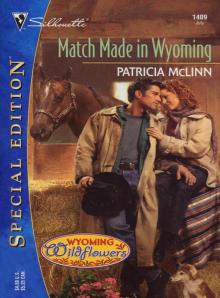 MATCH MADE IN WYOMING
MATCH MADE IN WYOMING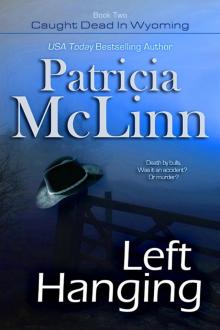 Left Hanging
Left Hanging What Are Friends For?
What Are Friends For?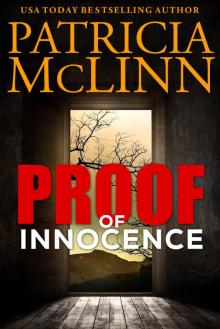 Proof of Innocence
Proof of Innocence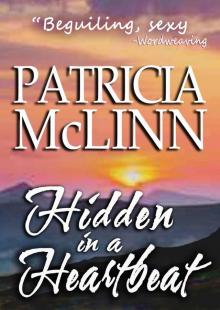 Hidden in a Heartbeat (A Place Called Home, Book 3)
Hidden in a Heartbeat (A Place Called Home, Book 3)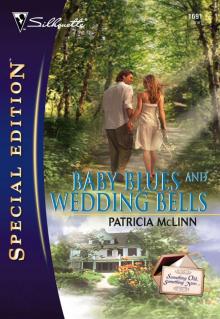 Baby Blues and Wedding Bells
Baby Blues and Wedding Bells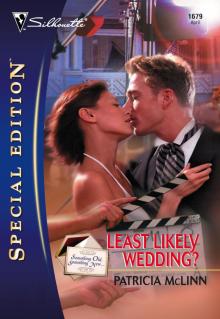 Least Likely Wedding?
Least Likely Wedding? Heart Stealers
Heart Stealers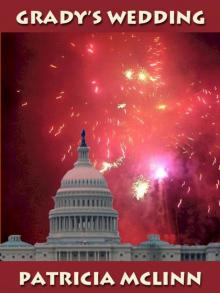 Grady's Wedding
Grady's Wedding Right Brother
Right Brother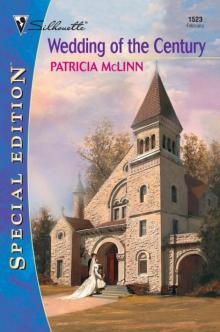 Wedding of the Century
Wedding of the Century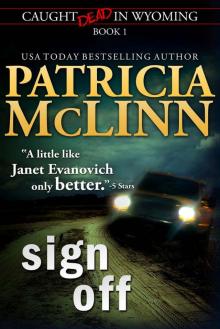 Sign Off
Sign Off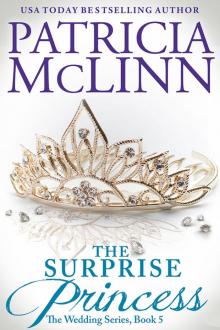 The Surprise Princess
The Surprise Princess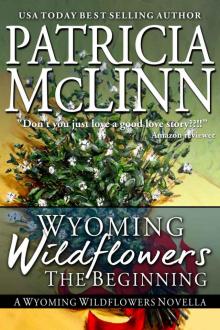 Wyoming Wildflowers: The Beginning
Wyoming Wildflowers: The Beginning